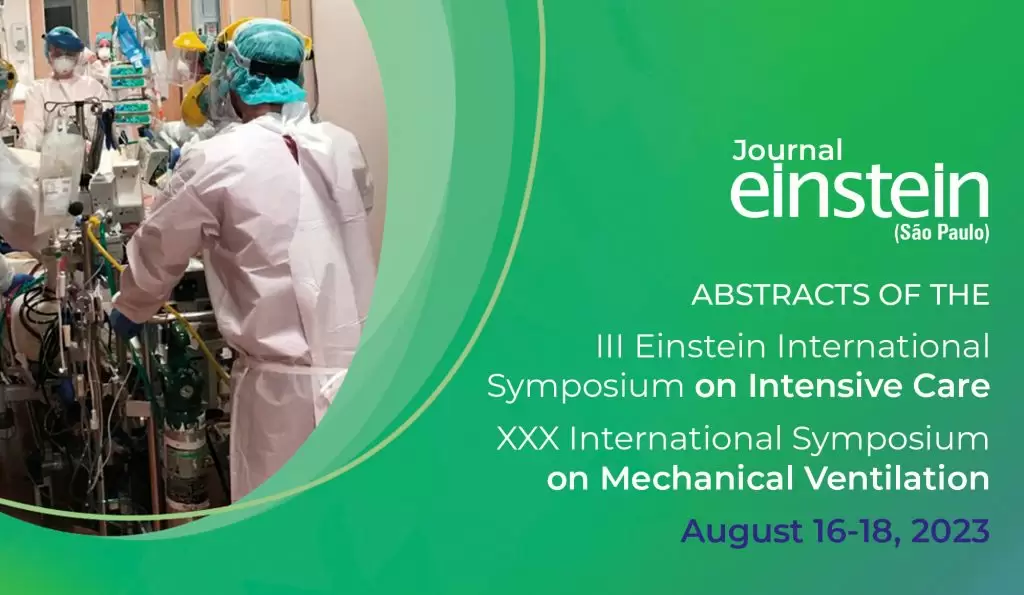einstein (São Paulo). 15/Aug/2023;21(Suppl 1):EISIC_MV0019.
Prognosis of surgical oncology patients during the COVID-19 pandemic in Brazil: the coronal study
DOI: 10.31744/einstein_journal/2023ABS_EISIC_MV0019
III Einstein International Symposium on Intensive Care and the XXX International Symposium on Mechanical Ventilation. Aug 16-18, 2023.
Category: Surgery and Trauma
Introduction:
The impact of COVID-19 on post-operative recovery from cancer surgeries, which most times cannot wait, needs to be understood to inform sound clinical decision- making during and after any pandemics.(,)
Objective:
The aim of this study was to define the impact on 28-day mortality and morbidity of surgical oncology patients during the COVID-19 pandemic.
Methods:
Cohort study carried out before and during the onset of the COVID-19 pandemic in 2020, observational, multicenter, which consisted of determining the risks to oncological surgical patients admitted to Intensive Care Units (ICU) in the postoperative period in 3 institutions specialized in the treatment of cancer. Oncological surgical patients consecutively admitted to the ICUs from March to June 2019 (first phase) and from March to June 2020 (second phase) were evaluated. In the first phase proposed in the study, there were still no cases of COVID-19 and in the second phase the pandemic was in the initial stages. On the 28th day, a survival analysis was performed as the primary outcome. As a secondary outcome, the patients were followed during their ICU stay for a maximum of 7 days to determine organ dysfunction (SOFA score) and clinical-surgical complications. Multivariate analysis was provided due to possible imbalances between groups.
Results:
During the study periods 328 patients were screened, however 291 patients were included, with 160 patients in 2019 and 131 in 2020. Overall age was 60.8±14.5 years old and 52.3% were female. The SAPS 3 score was 43.6±12.4. All baseline characteristics were well balanced between the two periods. Furthermore, the type of anesthesia and surgeries, intraoperative care and intraoperative complications did not show statistically significant differences between the studied groups. The overall mortality rates were 3.1% in the ICU and 10.4% in the hospital. However, comparing the periods, there were higher occurrences of mortality in the ICU and hospital in 2020. When adjusting the data for risk variables, respiratory complications and pulmonary infection remained higher in 2020, on the other hand the rates of other types of infections were lower in 2020 (odds ratio 0.78; 95%CI:0.67-0.91). Evaluating the risk ratio for 28-day survival in the COX model adjusted for risk variables between the periods of 2019 and 2020, HR= 4.35 (95%CI:2.15 – 8.82) was found for patients in the period from 2020.
Conclusion:
Patients who underwent oncological surgeries and were referred to the ICU had a higher risk of death in the 28-day follow-up during the period of the COVID 19 pandemic. In addition, they are more likely to have respiratory complications and lung infections.
41


